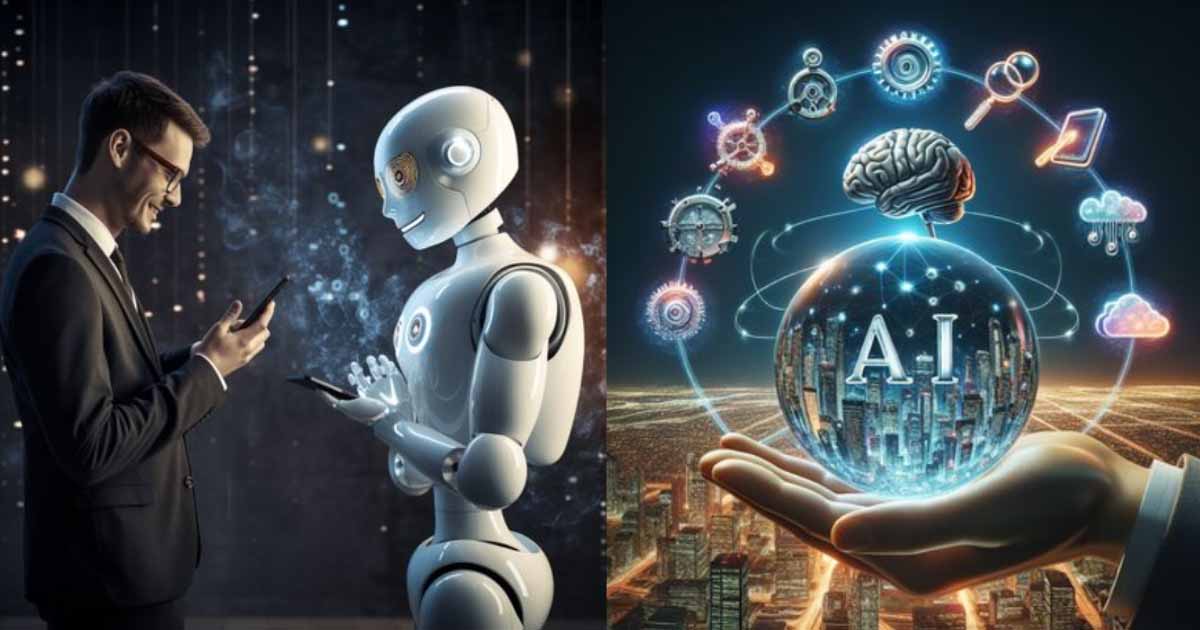Exploring the Potential of AI: Innovations Transforming Industries
Artificial intelligence (AI) is revolutionizing industries around the world, introducing innovations that increase efficiency, enhance customer experiences, and transform how businesses operate. Here’s a look at some of the key areas where AI is driving significant change:

1. Healthcare: Improving Diagnosis and Treatment
AI is playing a critical role in healthcare, from assisting in early disease detection to personalizing treatment plans. Machine learning algorithms analyze large datasets of medical images and patient records to help doctors make more accurate diagnoses and predict patient outcomes. AI-powered tools are also supporting drug discovery, accelerating the development of new treatments.
2. Finance: Enhancing Fraud Detection and Personalized Banking
In finance, AI is used to detect fraud, manage risk, and create personalized banking experiences. AI systems analyze transaction patterns to identify suspicious activities in real-time, safeguarding customer assets. Additionally, AI-driven chatbots and financial advisors offer customized investment recommendations, making financial services more accessible and user-friendly.
3. Retail: Elevating Customer Experience and Inventory Management
Retailers are leveraging AI to enhance the shopping experience and optimize operations. From chatbots providing customer support to recommendation engines suggesting personalized product choices, AI enables a more tailored shopping journey. AI also helps with inventory management by predicting demand trends, ensuring that popular products are stocked while minimizing waste.
4. Manufacturing: Streamlining Production and Predictive Maintenance
AI-driven automation is transforming manufacturing, where robots and smart systems handle repetitive tasks with precision and speed. AI algorithms also support predictive maintenance by analyzing machinery data, identifying potential issues before they lead to downtime. This helps companies avoid costly repairs and improve overall productivity.
5. Agriculture: Increasing Yields with Precision Farming
In agriculture, AI-powered systems help farmers monitor crops, predict weather patterns, and optimize resource use. Precision farming tools analyze soil health, moisture levels, and crop growth, enabling farmers to make data-driven decisions. Drones equipped with AI software also monitor crop health, allowing farmers to address issues more efficiently and increase yields.
6. Transportation and Logistics: Optimizing Routes and Autonomous Vehicles
The transportation and logistics sectors benefit greatly from AI, which improves efficiency through route optimization and fleet management. Self-driving cars, trucks, and drones are becoming more viable, promising safer, more efficient delivery and travel options. AI also helps reduce fuel consumption and delivery times, cutting costs and minimizing environmental impact.
7. Education: Personalized Learning and Virtual Tutors
In education, AI provides personalized learning experiences for students. Adaptive learning platforms analyze students’ strengths and weaknesses, adjusting content to fit individual needs. AI-powered virtual tutors offer on-demand assistance, helping students learn at their own pace. This technology also aids teachers by automating grading and identifying areas where students may need additional support.
8. Energy: Advancing Renewable Energy and Grid Management
AI is transforming the energy sector by helping optimize energy distribution and supporting renewable energy sources like wind and solar power. AI systems can predict power demand and manage energy grids, reducing waste and improving efficiency. In renewable energy, AI helps monitor systems, maximize output, and ensure stability.
AI’s potential continues to expand across industries, driving advancements that impact every part of our lives. From improved medical care to personalized shopping, AI innovation is creating a future where technology enables smarter, more efficient, and more connected solutions.










